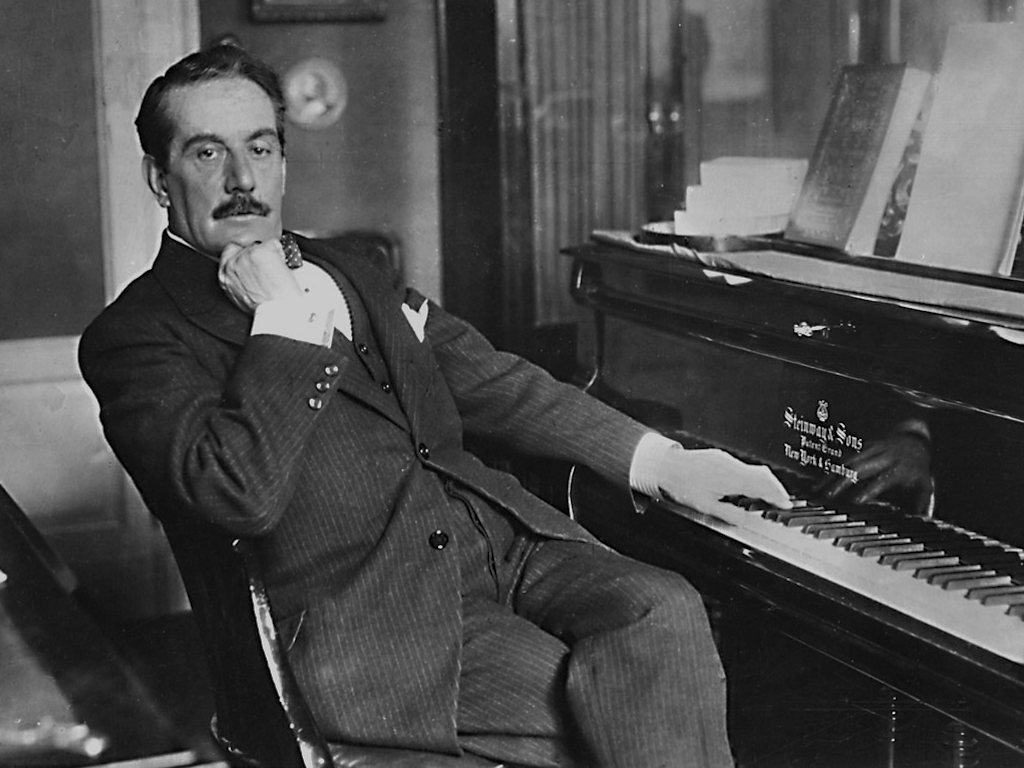O Mio Babbino Caro
Last week’s essay strongly suggested that Maalox and expensive single-malt scotch were essential to keeping one from going stark raving nuts during the final 168 hours of the presidential race. Today, with just 48 or so hours remaining, might I suggest an elixir of a different sort: opera. Few, except family and my closest friends, know of the great love I harbor for this most delightful artform. And when it comes to the Hall of Fame of operatic composers, none, in my humble estimation, ranks higher than Giacomo Puccini (that’s him on the left.) Puccini (1858-1924), like his countryman, Giuseppe Verdi, had the G-d-given ability to tap into human emotion far better than just about any artist who ever lived. Even if one doesn’t know più di poche parole basilari di italiano (“more than a few basic words in Italian), the loves, torments and emotions of his characters are still readily understandable . . . not so much because of the words themselves, but because of the heaven-sent scores he created.
Of all his operas, my favorite - bar none - is one of his trio of one-act operas (il tritico - “The tryptych’’): Gianni Schicchi debuted at the Metropolitan Opera on December 14, 1918, along with the other two one-act operas: Il tabarro (“The Cloak”) and Suor Angelica (“Sister Angelica”). Gianni Schicchi (pronounced “Johnny SKI-kee.”is a comic opera derived from a passage in the 30th canto of Dante’s Inferno,. That canto mentions, in an unflattering fashion, one Gianni Schicchi—who was an actual Florentine—as having been consigned to the eighth circle of hell with other forgers and cheats for disguising himself as Buoso Donati, a recently deceased Florentine aristocrat, in order to obtain Donati’s wealth for himself.
The high-point of the opera is the aria O mio babbino caro (“O my dear father”), sung by Lauretta, Johnny’s young daughter. In the aria, she pleads with her father that if he forbids her from marrying Rinuccio, her true love, she will drown herself in the Arno. Perhaps the greatest aria in the soprano’s lexicon, it has, over the past century, been successfully conquered by the likes of Dame Joan Southerland, Montserrat Caballé, Maria Callas, Victoria de Los Angeles and . . . a brilliant Dutch South African named Amira Willighagen. Amira’s version came to international attention when she was but 9 years old (today she’s 16 and even better). And for those who have seen and/or heard her O mil babbino caro, there are tears to be shed, emotions to be felt and possesses the miraculous ability banish ennui, dread and weltschmerz a German word meaning “world weariness.”
Please give this tour-de-force a watch and a listen. If nothing else, it might convince you that in a world filled with pain, uncertainty, and the lack of what might be called the “artistry of humanity,” Amira’s singing of O mio bammbino caro may just well renew our belief in the possibility of beauty and redemption.
Here’s to Tuesday . . .
Copyright©2020 Kurt F. Stone

